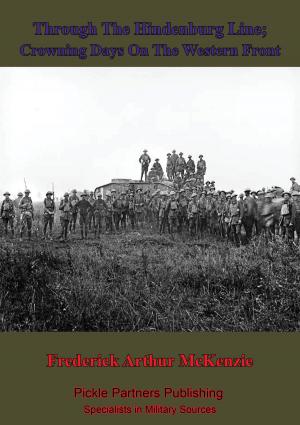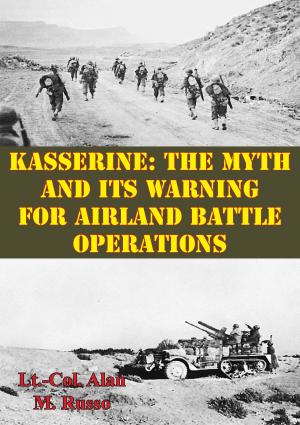Denis Oliver Barnett - In Happy Memory - His Letters From France And Flanders October 1914-August 1915
Nonfiction, History, Military, World War I, Germany, British| Author: | Lieutenant Denis Oliver Barnett | ISBN: | 9781782895626 |
| Publisher: | Lucknow Books | Publication: | August 15, 2014 |
| Imprint: | Lucknow Books | Language: | English |
| Author: | Lieutenant Denis Oliver Barnett |
| ISBN: | 9781782895626 |
| Publisher: | Lucknow Books |
| Publication: | August 15, 2014 |
| Imprint: | Lucknow Books |
| Language: | English |
Denis Oliver Bartlett now lies in Poperinghe New Military Cemetery in Belgium, a bright young man who was cut down in his prime during the 1915: these letters home provide a lasting and fitting tribute to him.
In August 1914, he enlisted in the Artists’ Rifles: by October 27th he was in France. His own letters best tell the tale of what work he found to his hand and how he bore himself in that new world. It is enough to say here that upon going to the front he soon received a commission. He became 2nd lieutenant in the 2nd Batt. Leinster Regiment on January 1st 1915, and was promoted to be lieutenant on June 10th. All those who knew him speak with one voice in his praise. ‘He was of the sort that don’t know fear and would without doubt have greatly distinguished himself, had he been spared; he only wanted the opportunity. He was always wonderfully light-hearted and cheerful, so much so that I really believe he enjoyed warfare thoroughly, and the worse things were, the more cheerful he was. So ‘twas no wonder he endeared himself to us all and that we all feel his loss as that of a dear brother and miss him at every turn.’
On the 30th July he went back to Flanders for the last time. The rest is best told in the words of one of his fellow-officers. ‘He was bomb officer and was in his element, leading all the bomb counter-attacks successfully and never getting a scratch. He could throw extraordinarily well and he used to frighten the Germans by getting tonite bombs into their trenches 150 yards away. That night (August 15th) Barnett had to start a working party at a place where our trench touched the German trench, with only twenty yards of unoccupied trench in between. He was warned to be careful, as the Germans had a machine gun and several rifles trained on the spot, but with his usual courage he got up on the parapet and from there directed the working-party. A flare showed him up and he was fired at immediately and one bullet hit him in the body.’
Denis Oliver Bartlett now lies in Poperinghe New Military Cemetery in Belgium, a bright young man who was cut down in his prime during the 1915: these letters home provide a lasting and fitting tribute to him.
In August 1914, he enlisted in the Artists’ Rifles: by October 27th he was in France. His own letters best tell the tale of what work he found to his hand and how he bore himself in that new world. It is enough to say here that upon going to the front he soon received a commission. He became 2nd lieutenant in the 2nd Batt. Leinster Regiment on January 1st 1915, and was promoted to be lieutenant on June 10th. All those who knew him speak with one voice in his praise. ‘He was of the sort that don’t know fear and would without doubt have greatly distinguished himself, had he been spared; he only wanted the opportunity. He was always wonderfully light-hearted and cheerful, so much so that I really believe he enjoyed warfare thoroughly, and the worse things were, the more cheerful he was. So ‘twas no wonder he endeared himself to us all and that we all feel his loss as that of a dear brother and miss him at every turn.’
On the 30th July he went back to Flanders for the last time. The rest is best told in the words of one of his fellow-officers. ‘He was bomb officer and was in his element, leading all the bomb counter-attacks successfully and never getting a scratch. He could throw extraordinarily well and he used to frighten the Germans by getting tonite bombs into their trenches 150 yards away. That night (August 15th) Barnett had to start a working party at a place where our trench touched the German trench, with only twenty yards of unoccupied trench in between. He was warned to be careful, as the Germans had a machine gun and several rifles trained on the spot, but with his usual courage he got up on the parapet and from there directed the working-party. A flare showed him up and he was fired at immediately and one bullet hit him in the body.’
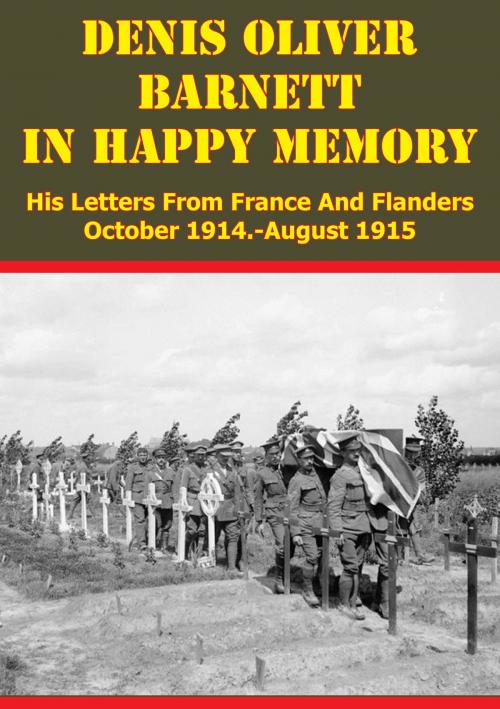
![Cover of the book Ambassador Morgenthau’s Story [Illustrated Edition] by Lieutenant Denis Oliver Barnett](https://www.kuoky.com/images/2014/august/300x300/9781782893004-CP2b_300x.jpg)
![Cover of the book Grand Fleet Days [Illustrated Edition] by Lieutenant Denis Oliver Barnett](https://www.kuoky.com/images/2015/november/300x300/9781786255358-2SuP_300x.jpg)
![Cover of the book The Mediterranean and Middle East: Volume I The Early Successes Against Italy (To May 1941) [Illustrated Edition] by Lieutenant Denis Oliver Barnett](https://www.kuoky.com/images/2014/august/300x300/9781782895589-Gmiw_300x.jpg)
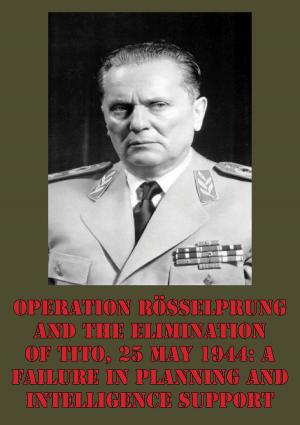
![Cover of the book OMAHA BEACHHEAD - (6 June-13 June 1944) [Illustrated Edition] by Lieutenant Denis Oliver Barnett](https://www.kuoky.com/images/2014/august/300x300/9781782892632-IFKo_300x.jpg)

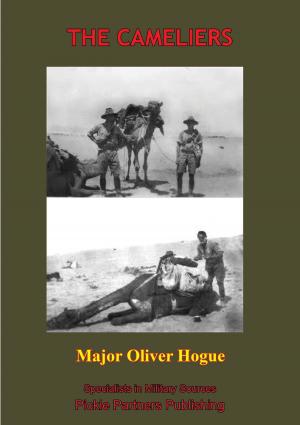
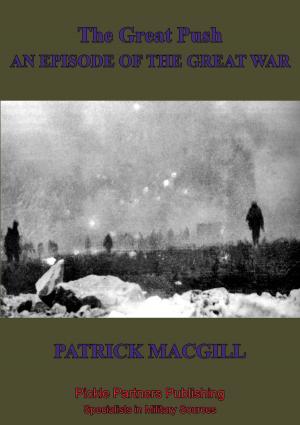

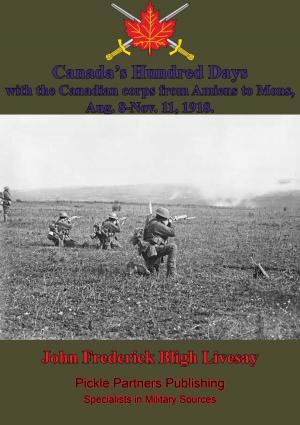
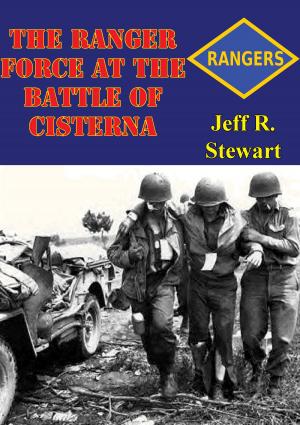

![Cover of the book The A.E.F. Of A Conscientious Subaltern [Illustrated Edition] by Lieutenant Denis Oliver Barnett](https://www.kuoky.com/images/2014/august/300x300/9781782892977-a5ly_300x.jpg)
